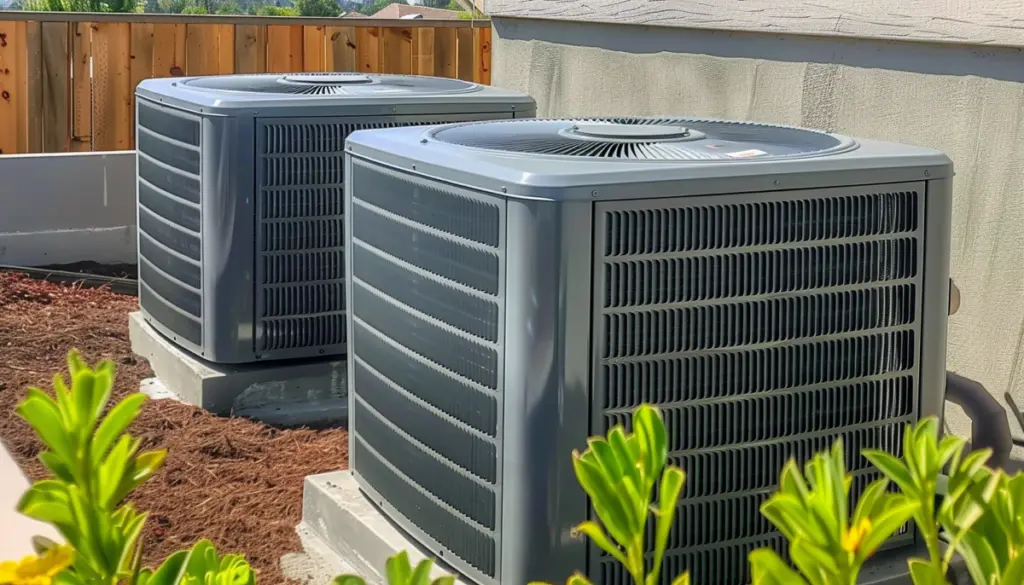Blog
How Much is an HVAC System in Colorado?

If you’re thinking of calling us or another HVAC contractor for a new system, you’re likely sweating bullets over the potential cost. Given Colorado’s diverse climate—from the snowy peaks of the Rockies to the arid plains—it’s crucial that you have efficient heating, ventilation, and air conditioning systems in your home. Still, costs for these types of replacements are rarely cheap.
To save you a surprise, we put together this helpful guide covering average costs for HVAC systems in Colorado. However, it’s important to note that every case is different, so your cost may be different than what is outlined here.
The Short Answer
For an HVAC system in Colorado, homeowners can expect the installation cost to generally range between $3,500 and $15,000+, with a per-square-foot cost averaging around $3 to $6. This range accommodates system type, home size, and efficiency levels. Precise costs can vary, so it’s advisable to reach out to us for a quote.
Factors Influencing HVAC System Costs
Home Size and Scope of Work: The size of your home plays a critical role in determining the size and cost of an HVAC system in Colorado. Larger homes require systems with greater capacity to efficiently heat and cool the entire space, which can increase the overall cost. Additionally, the project’s scope—a simple replacement of existing equipment or a complete installation with new ductwork—significantly impacts the price. Complex installations requiring extensive labor, such as running new ductwork or modifying high-efficiency systems, can increase costs further.
Type of System and Efficiency: The choice between different HVAC system types (e.g., furnaces, air conditioners, heat pumps) and their efficiency levels is another major cost determinant. High-efficiency models, while more expensive upfront, offer long-term savings through reduced energy bills. The efficiency of a furnace is measured by its AFUE (Annual Fuel Utilization Efficiency) rating, and the efficiency of an air conditioner is measured by its SEER (Seasonal Energy Efficiency Ratio) rating. A higher AFUE or SEER rating indicates greater efficiency and a higher initial investment.
Cost Breakdown: Furnace and Air Conditioner Installation
Furnace Installation Costs: Furnace costs can vary widely based on efficiency, type, and fuel source. For instance, standard-efficiency gas furnaces may range from $2,200 to $6,500, while high-efficiency models can cost between $2,800 and $8,800. Electric furnaces, on the other hand, might cost between $2,100 and $7,800. The desired features, such as compatibility with heat pumps or variable-speed blowers, can influence the final price.
Air Conditioner Installation Costs: Like furnaces, the cost of air conditioner installations depends on the unit’s size (in tons), SEER rating, and any additional features for comfort and performance, such as variable speed technology or noise reduction features. Standard efficiency units (14 SEER) may start around $4,200 and can go up to $6,700, while higher efficiency models (16 SEER and above) can range from $4,800 to more than $10,800. The choice of a heat pump for both heating and cooling can affect costs, with prices varying significantly based on efficiency and capacity.
Additional Costs to Consider
When planning for an HVAC system installation in Colorado, it’s essential to look beyond the initial price tag of the furnace or air conditioner unit. Additional costs can impact the investment required for a comfortable and efficient home climate control solution.
- Warranties: Extended warranties can offer peace of mind but come with an upfront cost. Manufacturer warranties cover parts for a certain period, and some contractors offer additional labor warranties. Considering the potential savings from future repairs or replacements can make these warranties a wise investment.
- Permits and Inspections: Local regulations often require permits for HVAC installations, which ensure the system meets safety and efficiency standards. The cost of these permits and any necessary inspections should be factored into the project’s total budget.
- Repairs and Upgrades: If you’re replacing an existing system, perhaps because your AC stopped blowing cold air, unexpected repairs or upgrades may be necessary. For example, older homes might need ductwork repairs or electrical system upgrades to accommodate a new, more efficient HVAC system.
Tips for Homeowners
Navigating the costs and options for HVAC installations can be overwhelming. Here are some tips to help Colorado homeowners make informed decisions and potentially save money:
- Look for Rebates and Incentives: Federal, state, and local energy efficiency incentives can offset some upfront costs. Utilities sometimes offer rebates for high-efficiency systems, so it’s worth checking with your local providers.
- Don’t Overlook Efficiency for Price: While high-efficiency systems have a higher initial cost, they can significantly save energy bills over time. Balancing the upfront cost with potential long-term savings is crucial.
- Regular Maintenance: Once your system is installed, regular maintenance can extend its life and ensure it runs efficiently, saving money on energy bills and avoiding costly repairs.
- See if Your Homeowner’s Insurance Will Cover It: In some cases, homeowner’s insurance will cover your replacement.
HVAC Cost in Colorado: Final Thoughts
Choosing and installing an HVAC system in Colorado is a significant investment that affects your home’s comfort, energy efficiency, and long-term expenses. Understanding the various factors that impact the cost of an HVAC system, such as the size of your home, the type of system chosen, its efficiency, and the complexity of the installation process, can help you make informed decisions that cater to your specific needs and budget constraints.
If you’ve found yourself in need of an HVAC repair or replacement in Colorado, make sure to give us a call so we can get you squared away.
